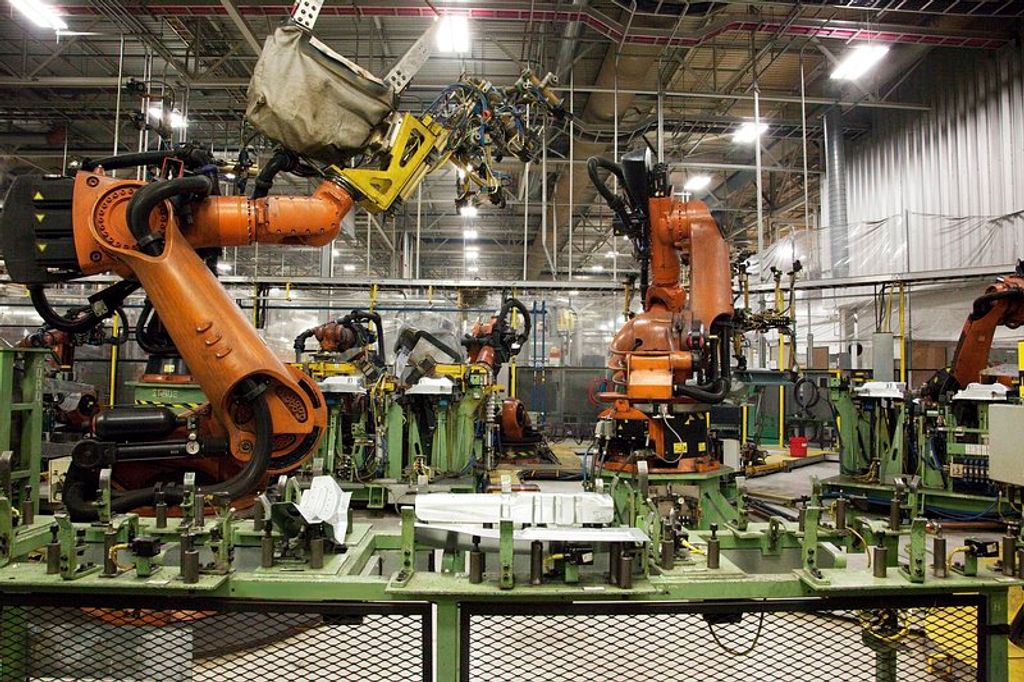Artificial Intelligence (AI) technologies are rapidly being adopted in the field of HR, shaping the future trajectory of HR practices and making them more efficient. While there are concerns about the rise of AI in HR, it is important to recognize that AI can support HR professionals by providing data-driven insights and improving recruitment processes. In this article, we will explore the role of AI in HR and its impact on various aspects of HR functions. Here are the key takeaways:
Key Takeaways
- AI in HR can automate routine tasks and improve efficiency.
- AI can provide data-driven insights to inform decision making in recruitment and employee learning programs.
- AI can streamline the onboarding process and personalize employee training.
- Predictive analytics powered by AI can help identify flight risks and improve employee engagement.
- Ethical considerations such as bias, privacy, and transparency need to be addressed when implementing AI in HR.
The Role of AI in HR

Understanding AI in HR
Intelligence or AI has been on the rise, changing the way businesses are run. Businesses are increasingly implementing Artificial Intelligence in their HR operations. Here is how businesses across the globe are benefiting from the amalgamation of AI with HR:
–Reducing costs: AI can be used to reduce costs in a number of ways, including reducing the time HR professionals spend on administrative tasks, automating workflows, and improving employee self-service tools. This means less time spent on routine tasks that you can use to focus on high-value activities like developing talent and building organizations.
-Optimizing employee experience: AI can help optimize the employee experience by providing personalized recommendations, streamlining processes, and improving communication. By leveraging AI, HR teams can create a more engaging and efficient work environment.
-Enhancing decision-making: AI can provide valuable insights and data-driven recommendations to support HR decision-making. By analyzing large amounts of data, AI algorithms can identify patterns, trends, and correlations that humans may miss, enabling HR professionals to make more informed and strategic decisions.
-Improving talent acquisition and retention: AI can assist in the recruitment and retention of top talent. AI-powered tools can automate resume screening, identify qualified candidates, and even predict employee flight risks. This can save time and resources, while also improving the quality of hires and reducing turnover rates.
-Enabling predictive analytics: AI can enable predictive analytics in HR, allowing organizations to forecast future trends and outcomes. By analyzing historical data and identifying patterns, AI algorithms can help predict employee performance, engagement levels, and even potential attrition. This can help HR teams proactively address issues and make data-driven decisions.
Overall, AI has the potential to revolutionize HR by automating routine tasks, improving efficiency, and enabling data-driven decision-making. However, it is important to carefully consider the ethical implications and ensure that AI is used responsibly and in a way that respects employee privacy and promotes fairness and diversity.
Benefits of AI in HR
Intelligence or AI has been on the rise, changing the way businesses are run. Businesses are increasingly implementing Artificial Intelligence in their HR operations. Here is how businesses across the globe are benefiting from the amalgamation of AI with HR:
-
Reducing costs: AI can be used to reduce costs in a number of ways, including reducing the time HR professionals spend on administrative tasks, automating workflows, and improving employee self-service tools. This means less time spent on routine tasks that you can use to focus on high-value activities like developing talent and building of the tedious tasks that HR professionals have to do on a regular basis, freeing them up for more meaningful work.
-
Recruitment: One of the biggest challenges in the recruitment process is the time it takes to find qualified candidates and schedule interviews. With AI, recruiters can use predictive analytics to automate the entire recruiting process from start to finish — from sourcing candidates to scheduling interviews and even volume of tasks undertaken by HR professionals, the best way to go is automation. AI can streamline the following HR activities: Recruiting, Employee experience, and Employee performance. Recruitment is a capital-intensive and time-consuming exercise for HR professionals. Introducing AI in recruiting has helped streamline all aspects of hiring, including talent sourcing.
-
Employee engagement and retention: AI can play a crucial role in improving employee engagement and retention. AI-powered tools can analyze employee data to identify patterns and trends that may indicate low engagement or flight risks. This will help recognize employee dissatisfaction quickly, enable staff to implement proactive measures, and avoid massive employee churning. Similarly, HR automation will assist in executing complex HR practices such as succession planning and personnel management. HR automation will also make the future workplace more diverse and inclusive. This stems from the ability of AI tools to remove most forms of bias in hiring, giving room for a diverse and inclusive workforce that fosters innovation and growth.
-
Ethical considerations: While AI offers numerous benefits in HR, it also raises ethical considerations. Bias and discrimination in AI algorithms can perpetuate existing inequalities and hinder diversity and inclusion efforts. Privacy and data security are also important considerations when implementing AI in HR, as employee data needs to be protected. Transparency and accountability in AI systems are crucial to ensure fair and ethical decision-making processes.
Challenges of Implementing AI in HR
Implementing AI in HR comes with its own set of challenges. One of the main challenges is ensuring the accuracy and fairness of AI algorithms. AI systems are trained on historical data, which can contain biases and perpetuate discrimination. HR professionals need to carefully evaluate and monitor AI algorithms to ensure they are not inadvertently making biased decisions. Another challenge is the potential resistance from employees. Some employees may be skeptical or resistant to the idea of AI taking over certain HR tasks. HR professionals need to effectively communicate the benefits of AI and address any concerns or fears that employees may have. Finally, there is the challenge of data privacy and security. AI systems rely on large amounts of data, including personal and sensitive employee information. HR professionals need to ensure that proper data protection measures are in place to safeguard this information.
AI in Recruitment and Hiring

Automated Resume Screening
Automated resume screening is a game-changer in the recruitment process. With the help of AI, companies can now efficiently sift through hundreds, and at times thousands, of resumes to identify the best candidates. AI-powered tools use machine learning algorithms to analyze resumes and match them against preset criteria, eliminating human bias from the selection process. This not only saves time for hiring managers but also ensures a fair and objective evaluation of applicants.
In addition to screening resumes, AI can also use predictive analytics to forecast candidates who are a perfect fit for specific roles. By analyzing historical data and identifying patterns, AI HR software can direct job postings to markets that have a track record of producing skilled talent. This targeted approach increases the chances of finding highly skilled candidates quickly.
Furthermore, automated resume screening tools streamline communication during the hiring process. Through chatbots, they can provide timely and accurate information to users, answer frequently asked questions, and even set up initial interviews with shortlisted candidates. This not only improves the candidate experience but also frees up time for HR professionals to focus on other important tasks.
Overall, automated resume screening powered by AI has revolutionized the recruitment process. It has made it faster, more efficient, and less prone to human bias. By leveraging AI technology, companies can identify the most qualified candidates and ensure a fair evaluation process, ultimately leading to better hiring decisions.
AI-powered Candidate Sourcing
AI-powered candidate sourcing is revolutionizing the way companies find and attract top talent. With the help of artificial intelligence, HR software can analyze vast amounts of data to identify the most qualified candidates for a specific role. By leveraging predictive analytics, AI can recommend the best markets to target for talent sourcing, saving time and resources. Additionally, AI-powered tools can automate the screening process by scanning CVs and shortlisting applicants based on preset criteria. This not only speeds up the hiring process but also ensures that only the most suitable candidates are considered.
Interviewing with AI
AI-powered interviewing is revolutionizing the hiring process by making it more efficient and effective. With AI, recruiters can automate the screening and selection of candidates, saving valuable time and resources. AI algorithms can analyze resumes and job applications, identifying the most qualified candidates based on specific criteria. This not only speeds up the hiring process but also reduces bias in candidate selection. Additionally, AI-powered interviewing tools can conduct video interviews and analyze facial expressions, tone of voice, and body language to assess candidate suitability. This provides valuable insights to recruiters and helps them make more informed hiring decisions.
AI in Employee Onboarding and Training

Streamlining Onboarding Processes
Onboarding just got more seamless with the creation of AI-powered chatbots. Chatbots use the natural language processing technology to understand and respond to questions. They simplify the onboarding process by providing newly hired employees with relevant real-time company information when prompted. This enhances the onboarding experience of new hires, fostering employee satisfaction and engagement. Additionally, chatbots can walk new hires through important paperwork, filing, and other necessary onboarding tasks, reducing repetition and streamlining the process. With AI automation, HR professionals can gain sufficient time to address other important HR-related tasks.
Personalized Training with AI
AI still finds applications in this area by providing employees with personalized learning programs that suit their career goals. AI enables seamless tracking of each employee’s job efficiency, giving team managers the necessary inputs for fair and accurate job appraisals. It also helps reduce irregularities in payroll calculations and indiscipline in the digital workplace. Prompt delivery of crucial feedback to employees ensures quick resolution of issues. AI is equally important in a virtual workplace, where it can automate the entire recruiting process, generate personalized feedback reports, automate mundane tasks, and enable better decision-making. AI technology in HR can also minimize risks and improve training and development, resulting in cost savings and increased productivity. With AI’s innovative potential, businesses can revolutionize workplace productivity and make better decisions in choosing and using technology.
Monitoring Employee Performance
In addition, real-time performance review ensures prompt delivery of constructive feedback. Overall, automation of performance metrics helps to improve workforce planning. HR analytics AI-generated analytics are top-tier. They are real-time, immersive, and fully detailed. AI in HR statistics leads the way in predictive analytics and informed decision-making as its algorithms can break down enormous data sets into a series of actionable data sets. These extensive data collections provide information about relevant workforce dynamics, key performance indicators.
AI in Employee Engagement and Retention

Predictive Analytics for Employee Engagement
Predictive analytics is revolutionizing employee engagement by leveraging AI technology to analyze data and make accurate predictions about employee behavior and satisfaction. By analyzing various factors such as employee performance, feedback, and collaboration patterns, AI can identify trends and patterns that indicate levels of engagement and potential flight risks. This allows HR professionals to proactively address issues and implement strategies to boost employee engagement and retention. With predictive analytics, organizations can make data-driven decisions to create a positive work environment and foster a culture of continuous improvement.
AI-driven Employee Feedback
AI-driven employee feedback is revolutionizing the way companies assess and improve employee performance. By leveraging artificial intelligence, organizations can gather valuable insights from employee data and provide personalized feedback in a timely manner. This automated approach saves time for both managers and employees, allowing them to focus on more strategic tasks. AI-powered feedback systems can analyze performance metrics, identify patterns and trends, and provide actionable recommendations for development and improvement. With AI-driven feedback, companies can create a culture of continuous improvement and enhance employee engagement and satisfaction.
Identifying Flight Risks with AI
Identifying flight risks, or employees who are likely to leave the company, is a crucial task for HR departments. With the help of AI, organizations can analyze various data points to predict which employees are at a higher risk of leaving. By considering factors such as job satisfaction, performance, and engagement, AI algorithms can identify patterns and indicators that suggest an employee may be considering a job change.
To identify flight risks, HR teams can leverage AI-powered tools that analyze employee data, including performance reviews, feedback surveys, and even social media activity. These tools can provide insights into employee sentiment, identify potential red flags, and help HR professionals take proactive measures to retain valuable talent.
Implementing AI for flight risk identification offers several benefits. It allows HR departments to allocate resources effectively by focusing on employees who are most likely to leave. This targeted approach enables organizations to implement retention strategies and interventions tailored to individual employees’ needs. By addressing concerns and providing support, companies can increase employee satisfaction and reduce turnover rates.
However, there are challenges associated with implementing AI for flight risk identification. One of the main challenges is ensuring the accuracy and fairness of AI algorithms. Bias in data or algorithm design can lead to incorrect predictions and potential discrimination. HR teams must carefully select and train AI models to mitigate these risks. Additionally, privacy and data security concerns must be addressed to protect employee information.
In summary, AI can play a significant role in identifying flight risks within organizations. By leveraging AI-powered tools and analyzing various data points, HR departments can predict which employees are at a higher risk of leaving and take proactive measures to retain them. However, it is essential to address challenges such as algorithmic bias and data privacy to ensure the ethical and effective use of AI in HR.
Ethical Considerations of AI in HR

Bias and Discrimination in AI
Bias and discrimination are significant concerns when it comes to the use of AI in HR. While AI has the potential to streamline and improve various HR processes, it is crucial to address the potential biases that may be present in AI algorithms. Humans have biases, and if these biases are not properly addressed, they can be amplified and perpetuated by AI systems. To mitigate this risk, organizations must take proactive measures to eliminate bias from AI systems. This includes designing AI algorithms that are trained on diverse and representative data, regularly auditing and testing the algorithms for bias, and implementing safeguards to ensure fairness and equity in decision-making processes.
Privacy and Data Security
Privacy and data security are critical considerations when implementing AI in HR. As AI tools rely on extensive data mining, it is essential to prioritize data privacy to maintain the trust and confidence of employees. HR professionals must adhere to ethical standards to ensure the responsible handling of employee information. Implementing a solid data privacy policy is the first step in protecting personal information and safeguarding against potential breaches or leaks. By establishing robust security measures, organizations can mitigate the risks associated with AI in HR and create a safe environment for employees.
Transparency and Accountability
Transparency and accountability are crucial factors to consider when implementing AI in HR. As AI algorithms make decisions that impact employees’ lives, it is important to ensure that these decisions are fair, unbiased, and explainable. HR professionals must have a clear understanding of how AI systems work and the data they use to make decisions.
To promote transparency, organizations can implement measures such as providing employees with information about the AI tools being used, the data they collect, and how decisions are made. This helps build trust and allows employees to have a better understanding of how AI is being used in their workplace.
Accountability is equally important. HR professionals should take responsibility for the outcomes of AI systems and be prepared to address any issues or concerns that arise. This includes regularly monitoring and evaluating the performance of AI systems, as well as having mechanisms in place to handle complaints or appeals from employees.
In summary, transparency and accountability are essential for the successful implementation of AI in HR. By ensuring transparency and holding themselves accountable, organizations can mitigate the risks associated with AI and create a more inclusive and fair work environment.
Conclusion
In conclusion, the future of HR will be shaped by the integration of AI technologies. While there may be concerns about job replacement, AI is more likely to enhance HR practices rather than replace them entirely. AI can automate routine tasks, allowing HR professionals to focus on strategic planning and human-centric activities. It can also provide data-driven insights to inform decision making and improve recruitment processes. However, the human touch will remain essential in understanding and managing complex human emotions and interpersonal dynamics. As AI continues to evolve, HR professionals will need to adapt and upskill to remain relevant in an AI-enhanced work environment. Overall, AI has the potential to make HR more efficient and effective, ultimately improving the employee experience.
Frequently Asked Questions
What is the role of AI in HR?
AI in HR involves leveraging artificial intelligence technologies to automate and enhance various HR processes, such as recruitment, onboarding, employee engagement, and more.
What are the benefits of AI in HR?
The benefits of AI in HR include increased efficiency, improved decision-making through data-driven insights, personalized employee experiences, streamlined processes, and the ability to identify patterns and trends.
What are the challenges of implementing AI in HR?
Some challenges of implementing AI in HR include the need for proper data management and privacy protection, potential bias and discrimination in AI algorithms, employee resistance to change, and the requirement for continuous upskilling of HR professionals.
How does AI impact recruitment and hiring?
AI in recruitment and hiring can automate resume screening, use AI-powered candidate sourcing to identify potential candidates, and even conduct interviews with AI-powered chatbots.
What is the role of AI in employee onboarding and training?
AI can streamline onboarding processes by automating administrative tasks, provide personalized training experiences through adaptive learning algorithms, and monitor employee performance to identify areas for improvement.
How can AI contribute to employee engagement and retention?
AI can use predictive analytics to assess employee engagement levels, provide AI-driven feedback to improve employee experiences, and help identify flight risks by analyzing various data points.




